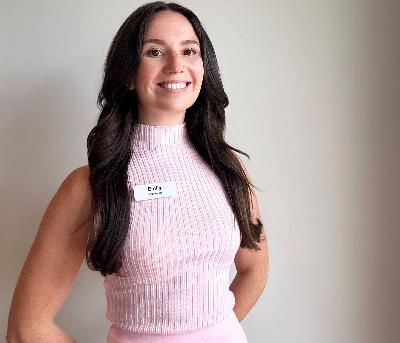‘Those sorts of interactions can really just beat down at your ego’
Description
“From systemic erasure in medical education to outright discrimination in our care settings” – LGBTQIA+ patients face a lot of barriers to care and medicines access, says one pharmacist advocating in this space
“LGBTQIA patients often face fear of judgement, misgendering or having to show up in discomfort when they have to educate their own healthcare provider just to receive that appropriate care,” says Deni Salmon, the founder of Queer Pharmacists of Australia.
“In pharmacy, this can show up in when people are trying to access gender affirming hormones or if we take a look at the other parts of the queer community… it includes the cisgender community, but the HIV status being over-sensationalised when you’re going to get to antiretrovirals and stuff like that,” says Salmon, a transgender woman and community pharmacist.
“Or even just assumptions about sexual health in general, not being able to navigate from a cis heteronormative kind of aspect,” she tells AJP Podcast host Carlene McMaugh.
“The result usually leads to delayed care, poorer health outcomes, and deep mistrust in the system.”
And LGBTQIA+ pharmacists face challenges of their own, she warns.
“Ultimately that can look like misgendering being passed over for leadership opportunities and I don’t think that’s secluded to L-G-B-T-Q-I-A pharmacists or transgender pharmacists
“It can be for women and people of colour and then dealing with those microaggressions from both colleagues and patients in the workplace…
“And when we do speak up, there’s often a fear of being labelled difficult or too political, and that’s something I’ve encountered so many times and I know I’m going to still encounter it in the future,” she says.
“I’m quite passionate and strong to deal with it, but I wish it would just stop because there’s other people who I don’t want that to happen to and I don’t think they can be as determined I guess, or they don’t even need to be determined.
“Those sorts of interactions can really just beat down at your ego and you shouldn’t have to deal with that at work.
“It can be isolating, but that’s also why peer support and visibility matters so much.”
More highlights include:
(00:49 ) – What does championing diversity and health equity mean for you?
(01:57 ) – “I think an ideal outcome would be a pharmacy landscape where every patient feels safe, seen and affirmed.”
(03:16 ) – How can pharmacists be more welcoming and inclusive for all?
(04:14 ) – Barriers to care for LGBTQIA+ patients
(05:30 ) – Challenges for LGBTQIA+ pharmacists
(07:49 ) – Salmon’s own experiences in pharmacy
(11:00 ) – Why using ‘Sir’ or ‘Ma’am’ never felt right in pharmacy
(12:48 ) – Bias and stigma in health care
(14:06 ) – “Start by using gender neutral language.”
(15:40 ) – Why Salmon founded Queer Pharmacists of Australia
(16:53 ) – Engaging in activism
(19:23 ) – Why the recent Fair Work decision on pay for feminised workforces was “very long overdue”
(21:29 ) – Women in pharmacy and the “double bind”
(25:11 ) – Why cultural competence and inclusivity matter in pharmacy
(26:04 ) – Self care and remaining resilient
(28:21 ) – Doing things better in the future
You can access the full transcript of this podcast here. While we endeavour to ensure all important words and phrases are correct, please note there may be some minor inaccuracies in the transcription.
Go here for the full list of active AJP podcasts. These can also be accessed via Apple Podcasts and Spotify
Carlene McMaugh
























